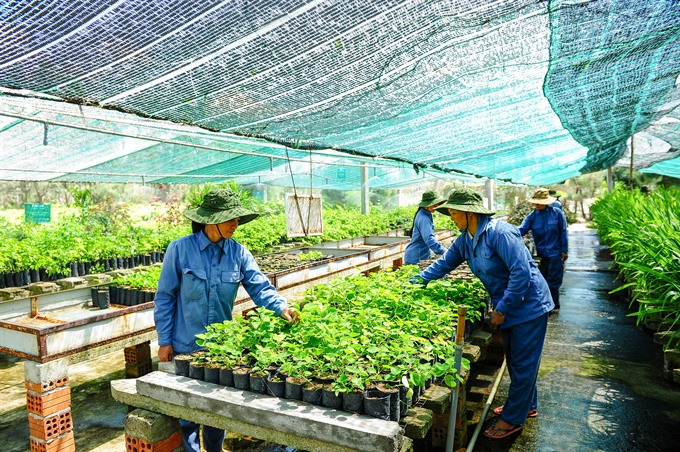 Society
Society

A campaign was launched in Hà Nội yesterday aiming to raise the awareness of the importance of safe herbal products.
 |
| Workers inspect herbs at a pharmaceutical centre in the central Phú Yên Province. — Photo HEVELTAS Vietnam |
HÀ NỘI — A campaign was launched in Hà Nội yesterday aiming to raise the awareness of the importance of safe herbal products.
The pharmaceutical sector in Việt Nam is in dire straits as 80 per cent of herbal medicines consumed in Việt Nam each year are imported, most of them illegally, said Trương Quốc Cường, head of the Drug Administration of Việt Nam at a conference on drug quality and origin last month.
Speaking at the launch ceremony of a BioTrade awareness-raising campaign yesterday, Associate Professor, doctor Nguyễn Tiến Dũng from Bạch Mai Hospital, said that herb enterprises can only win consumers’ trust if they show where their products come from.
BioTrade refers to “the activities of collection, production, transformation, and commercialisation of goods and services derived from native biodiversity under the criteria of environment, social and economic sustainability”, according to the United Nations Conference on Trade and Development (UNCTAD).
The campaign will run until 2020 aiming to disseminate information on the value of the BioTrade standard, as well as herbal products that are BioTrade-certified to Vietnamese consumers.
Viên Kim Cương, manager of the BioTrade project, said: “We hope that by the end of the campaign, Vietnamese consumers will know how to discern high quality, healthy products from dubious ones.”
According to Cương, only 5 per cent of 4,000 types of herbs found in Việt Nam are being used for the producing of herbal medicines. Of those, only 14 types are at international standards.
The BioTrade project is aimed at creating 50 herbal medicinal value chains that meet those standards by teaching farmers to grow, collect and preserve high quality herbs and by helping enterprises improve their management.
The scheme is estimated to cost VNĐ48.8 billion (US$2.2 million), funded by the European Union. Twelve enterprises, some 5,000 farmer households and government agencies will participate in the project.
“At the moment we are waiting for 600 hectares of our star anise farm in Lạng Sơn Province’s Văn Quan District to be certified organic. By joining the project, our farmers will learn farming techniques from experts to produce high quality herbs,” said Nguyễn Thị Huyền, director of the Việt Nam Staranise Cassia Manufacturing and Exporting Joint Stock Company, one of the first enterprises to join the project. — VNS




